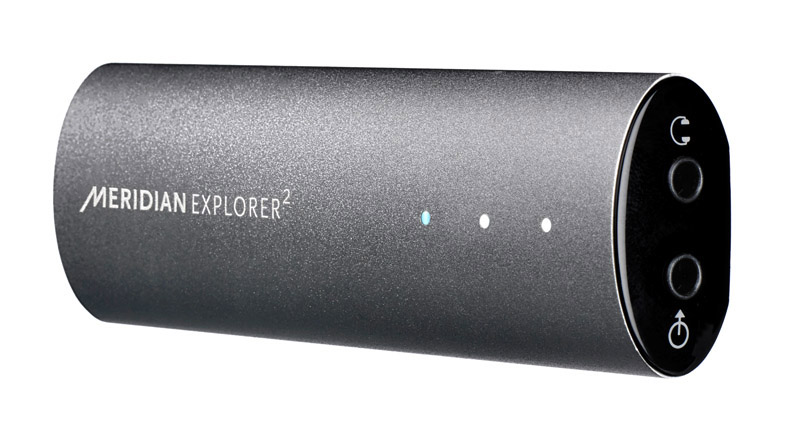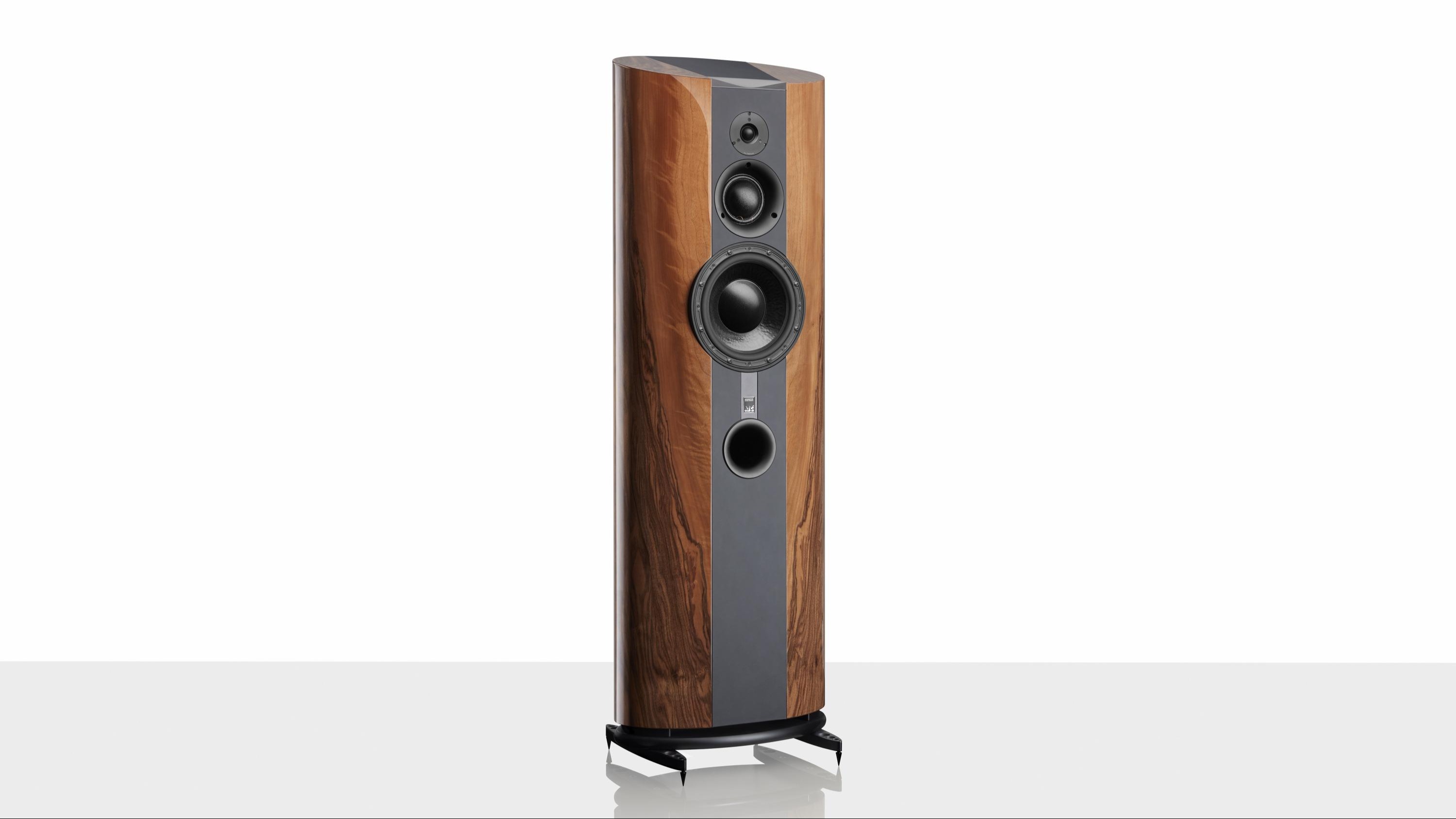What Hi-Fi? Verdict
An appealing budget DAC, especially for those with access to 192kHz and MQA tracks
Pros
- +
24-bit/192kHz compatibility
- +
MQA support
- +
Easy operation
- +
Clean, solid and refined presentation
Cons
- -
Rivals are more insightful and rhythmically adept
Why you can trust What Hi-Fi?
It’s unlikely that many budget DACs (digital-to-analogue converters) will suffer from enochlophobia (the fear of getting lost in a crowd).
Of late, the likes of the Award-winning Audioquest DragonFly Black and DragonFly Red, the HRT microStreamer and dSp, and the TEAC HA-P50 have been go-to options in the sub-£200 terrain, sitting under next-level models from Oppo, Chord and Arcam.
But thanks to its support of full native playback of 192kHz sample rates – greater than the 96kHz of its peers – and MQA (Master Quality Authenticated) support, Meridian believes its Explorer 2 will stand out from the competition.
Alongside several Meridian products, such as the Prime Headphone Amplifier, 808v6 Reference CD Player and its 40th Anniversary Systems, the Explorer 2 is the first of its kind to get onboard with MQA codec technology, which packages music efficiently into smaller files that are easier to download and stream.
As subscribers to the £20 per month ‘hi-fi’ tier of Tidal can now stream thousands of hi-res MQA songs, the Explorer 2’s support will no doubt be a handy perk for those with access.
It is worth mentioning, however, that both Audioquest DragonFly models are due to receive an update for fully-fledged MQA support too, so this exclusive benefit looks to be short-lived.
MORE: MQA hands on review
The latest hi-fi, home cinema and tech news, reviews, buying advice and deals, direct to your inbox.
Build
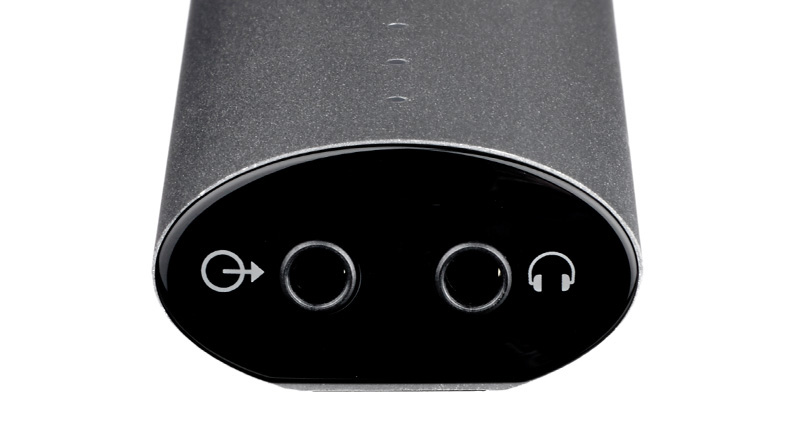
While not as discreet as its peers’ USB stick form, the functional and aesthetic design of the Meridian is more mature.
Not only is there a 3.5mm output for connecting headphones, another also lets you take a line level out to a stereo amplifier so it can work within a hi-fi system framework.
A short USB type-B cable connects it to your laptop or PC, which is how the Meridian also gets its power.
Like the original Explorer, it’s the shape of a cigarette lighter and around twice the size, comprised of an aluminium shell with a rubber strip on the bottom to stop it rolling off your desk.
There’s black plastic at both ends where the connections are housed.
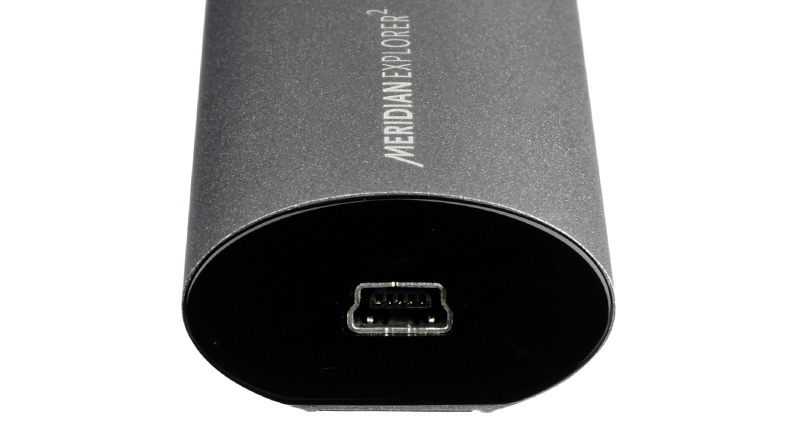
On the shell is a three-LED display; the first lights up white to show that it’s playing 44kHz/48kHz files, or blue or green when detecting MQA files.
The second illuminates during playback of either 88kHz or 96kHz files, while the third lights up when the file’s resolution is either 176kHz or 192kHz. It’s a useful guide and, if you are using Tidal, the only indicator of a stream’s resolution.
A couple of practical points to consider before you jump in. The Explorer 2 features an analogue volume control, so it is adjusted solely by your source i.e. a laptop.
If your PC or laptop is running Windows 7, 8 or XP, you’ll have to install the supplied driver.
MORE: Best hi-fi deals – CD players, amps, DACs and more
Sound
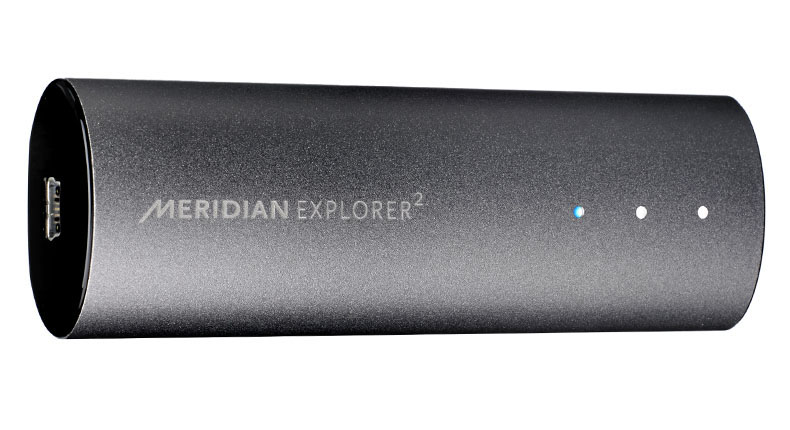
The Explorer 2 has an instantly agreeable and communicative sound.
With its sonic genes having been passed down from the original, the presentation is clean and balanced, with an accompanying smoothness and refinement that almost seems instinctive.
Naturally, the Meridian succeeds in its primary objective: to significantly improve the sound from our Apple Macbook Air and Macbook Pro laptops’ headphone output. And you only need a simple man-and-his-guitar arrangement like the opening of Biffy Clyro’s Medicine to hear that.
There’s more dynamic interest and rich textures to the melodic guitar plucking. Simon Neil’s Glaswegian twang is not only smoother and more solid, but thanks to the Meridian’s insight, climbing another rung on the song’s emotional ladder, there’s also more sentiment behind his breakdown-focused lyrics.
MORE: DACs - everything you need to know
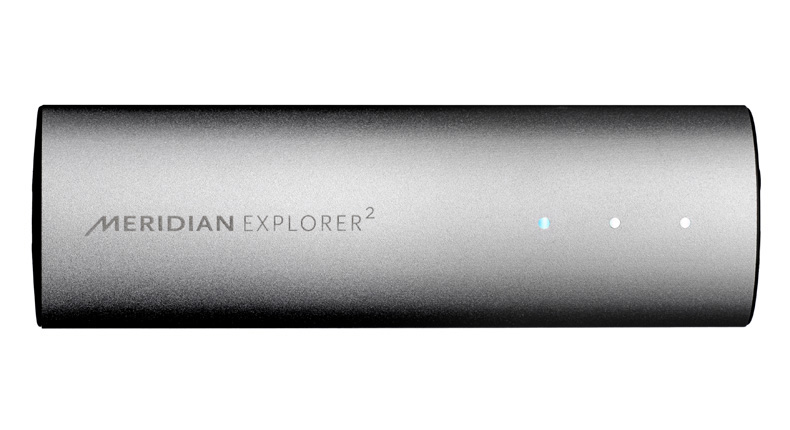
It’s the Meridian’s second ambition – to offer better sound quality than its competition – where it is less convincing.
While its presentation tugs the rope over the line from its peers with a touch more cleanliness and refinement, the DragonFly Red hauls it back over with its greater detail, subtler dynamics and firmer grasp of rhythms.
There’s a lot going on in the instrumental soundscape of The American Dollar’s 4 BC: intertwining percussion pattern, overlapping drum and acoustic guitar melodies, and underlying shimmery electronica.
The Meridian affords them clarity, hard-driven momentum and a sense of purpose, but the DragonFly Red not only follows each thread, but with better timing and precision also makes the multiple rhythms work better together.
Instruments are delivered with more transparency (drums greater thwack, synths more chime…), as well as greater movement both geographically and dynamically within the DragonFly’s soundstage.
Ultimately, the Explorer 2 is closer to the sonic standard of the DragonFly Black, cleaner and more solid albeit not as rhythmically erudite.
MORE: Best DACs 2017
Verdict
With such competition in the budget DAC market, being different is not so much courageous as necessary.
Meridian has pipped its peers to the post with MQA compatibility, embedding the support well into its design functionality too. Unusually at this price, it offers resolution support all the way up to 192kHz.
While commendable, its performance isn’t so progressive, though, and so anyone – especially the majority without much of a music library beyond 96kHz or accessibility to MQA files – shopping for a budget DAC would benefit more from a better performer like the DragonFly Red.
So where does that leave the Meridian Explorer 2? As a decent option certainly – more for some than others – but ultimately not talented enough to put you off exploring other options.
See all our Merdian reviews
What Hi-Fi?, founded in 1976, is the world's leading independent guide to buying and owning hi-fi and home entertainment products. Our comprehensive tests help you buy the very best for your money, with our advice sections giving you step-by-step information on how to get even more from your music and movies. Everything is tested by our dedicated team of in-house reviewers in our custom-built test rooms in London, Reading and Bath. Our coveted five-star rating and Awards are recognised all over the world as the ultimate seal of approval, so you can buy with absolute confidence.
